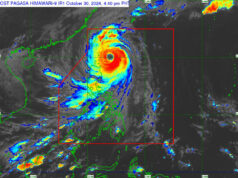By Jenina P. Ibañez
Reporter
SERVICES TRADE in the Philippines is expected to further slow as measures to stop the spread of COVID-19 (coronavirus disease 2019) halts tourism and impacts outsourcing.
The services trade barometer of the World Trade Organization (WTO) said growth in the global services trade slowed in the past year, indicating a reduced likelihood of recovery from the effects of the US-China trade war.
The index read 96.8, indicating below-trend growth, and does not yet reflect the full economic impact of COVID-19.
“The current barometer reading and the spread of COVID-19 suggest that services trade may slow further in coming periods.”
The WTO services trade barometer, which is issued twice per year, describes the current state of the services trade ahead of official statistics. The barometer released on March 11 shows services trade toward the end of 2019 and into the first quarter of 2020.
A reading of 100 shows growth consistent with medium-term trends, while numbers below it indicate below-trend growth.
IMPACT OF LOCKDOWN AND TRAVEL BANS
Rizal Commercial Banking Corp. economist Michael L. Ricafort said in an e-mail Monday that a community quarantine is a necessary and prudent measure in response to the outbreak. He also said that service trade activities in the Philippines may be reduced as the quarantine leads to declines in tourism, transportation, gaming, entertainment, retail trade, and conferences, among others.
President Rodrigo R. Duterte last week announced a community quarantine limiting the movement of people to and from Metro Manila to prevent the spread of COVID-19, which on Monday was extended to Luzon. The enhanced community quarantine suspends public transportation and the operations of most private companies.
The tourism industry, including related sectors such as entertainment and transportation, will take a hit as the Philippines extends its travel ban to foreign citizens coming from countries with local transmission of COVID-19. The quarantine also limits the domestic movement of travelers.
Business process outsourcing companies continue operations under the community quarantine, but do so with minimal staffing.
“These recent developments add to slowdown in services trade, on top of the pre-existing slowdown in global economic growth and in global trade by both coronavirus concerns since the latter part of January 2020 and the lingering US-China trade war since 2019,” Mr. Ricafort said.
Security Bank Corp. chief economist Robert Dan J. Roces in an e-mail said the tourism and airline industries will be affected most, because of the global decline in passenger travel.
“On the other hand, ICT (information and communications technology) services may not be fully affected relative to overall declines as consumers look to or transfer transactions using its services.”
WTO INDEX
According to the WTO barometer, the largest declines in global service trade are in passenger air travel and container shipping.
“Both indices cover developments through January and may partly reflect early efforts to halt the spread of the disease, which intensified toward the end of the month.”
Indices for financial services and ICT services also fell slightly below trend, while the construction index remained steady.
A decline in the global services purchasing manager’s index, the report said, shows how COVID-19 will continue to slow down services trade in the near term. The report said it is the most forward-looking barometer component.
WORSENING TRADE WAR’S NEGATIVE IMPACT
Union Bank of the Philippines chief economist Ruben Carlo Asuncion in an e-mail said globalization had previously increased services trade worldwide.
The recent services trade decline, he said, “is an indication of the ‘de-globalization’ phenomenon that we have observed in the last few years.”
Deglobalization refers to a decline in interdependence between nation states.
“One indicator of this phenomenon is the US-China trade war that has affected perceptions about global trade in general. More and more we have seen less porous borders and higher tariffs that discourage more trade, not just in services but in merchandise as well,” Mr. Asuncion said.
He said that COVID-19 escalates this phenomenon, because of lockdowns and travel bans.
“Services will be hard hit if COVID-19 is not controlled effectively.”
The Department of Tourism said international tourist arrivals fell 41.4% year-on-year in February, after growing 9.8% in January.
Philippine international tourism revenue in February fell 41% year-on-year to P26.73 billion.



